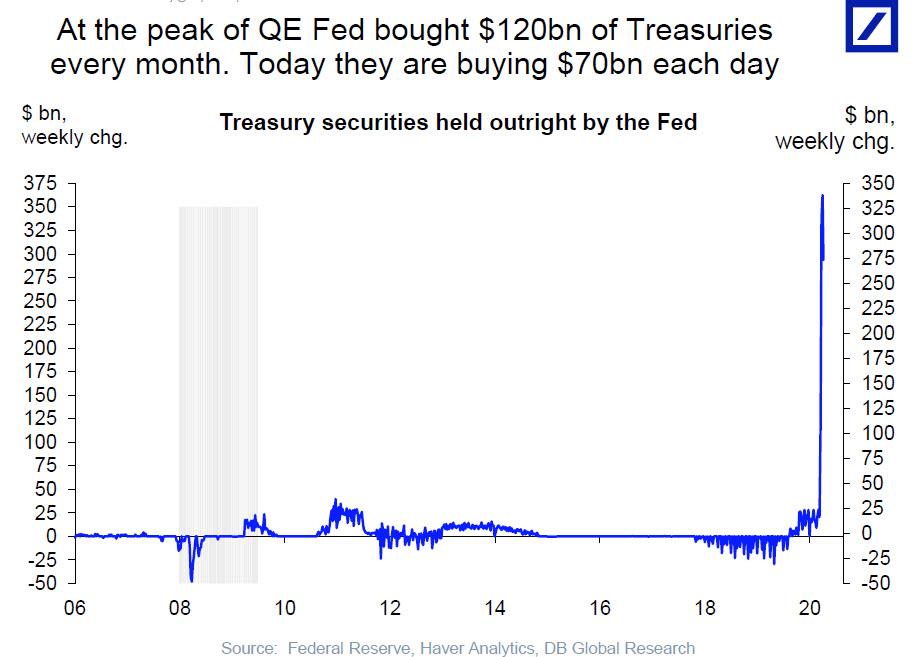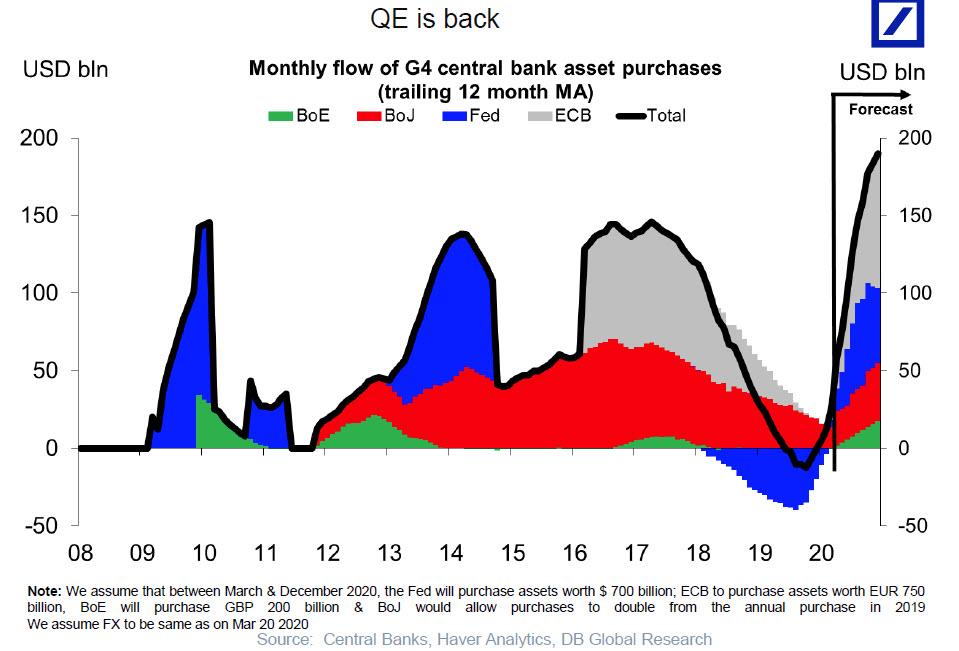The Federal Reserve activated a number of monetary channels during the 2008 financial crisis to funnel massive liquidity flows onto the balance sheets of major domestic and foreign banks and insurers – the very institutions which had ‘precipitated’ the crisis with their high-octane leveraged speculation strategies and moth-balled risk management departments.
Trillions of dollars gushed into the pipes and out through the Federal Reserve Discount Window and through numerous funding facilities ‘created’ by the Federal reserve, including the Term Auction Facility (TAF), Commercial Paper Funding Facility (CPFF), Primary Dealer Credit Facility (PDCF), the Term Securities Lending Facility (TSLF), Single-Tranche Open Market Operations (ST OMO), the Asset-Backed Commercial Paper Money Market Mutual Funding Liquidity Facility (AMLF) and several other credit facilities.
The Wall Street financial sector won big. Main Street America received enough scraps and crumbs to trudge on, loaded with debt. It was a complete, unbalanced travesty.
It is unbelievable to be watching this all play out again...
The Fed Reopens Its Landfill For Distressed Assets
Authored by Mike Whitney via The Unz Review,
ZeroHedge, 3/20/2020 – Excerpts:
The Fed is reopening its most controversial and despised crisis-era bailout facility, the Primary Dealer Credit Facility. The Wall Street Journal describes the PDCF as “an overnight loan facility for primary dealers (that) provides round-the-clock backup source of funding to banks.”
The WSJ’s description grossly understates the facility’s real purpose which is to transfer the toxic bonds and securities from failing financial institutions and corporations (through an intermediary) onto the Fed’s balance sheet.
The objective of this sleight of
hand is to recapitalize big investors who, through their own bad bets, are now
either underwater or in deep trouble. Just like 2008, the Fed is now doing
everything in its power to save its friends and mop up the ocean of red ink
that was generated during the 10-year orgy of speculation that has ended in
crashing markets and a wave of deflation. Check out this excerpt from an
article at Wall Street on Parade. Here’s an excerpt:
“Veterans on Wall Street think of the PDCF as the cash-for-trash facility, where Wall Street’s toxic waste from a decade of irresponsible trading and lending, will be purged from the balance sheets of the Wall Street firms and handed over to the balance sheet of the Federal Reserve – just as it was during the last financial crisis on Wall Street.” – (“Fed Announces Program for Wall Street Banks to Pledge Plunging Stocks to Get Trillions in Loans at ¼ Percent Interest” Wall Street on Parade)
In other words, the PDCF is a landfill
for distressed assets that have lost much of their value and for which there is
little or no demand. And, as bad as that sounds, the
details about the resuscitated PDCF are much worse.
First, the Fed is going to provide the 24 Primary Dealers (The Fed’s exclusive trading partners) with unlimited zero-rate loans. (0.25 percent)
Second, the loans will be issued for a period of up to 90 days after which they will be rolled over for as long as needed. (which basically transforms a collateralized loan into a permanent cash transfer.)
Third, (and this is from the text of the Fed’s March 17 announcement): “Collateral eligible for pledge under the PDCF includes all collateral eligible for pledge in open market operations (OMO); plus investment grade corporate debt securities, international agency securities, commercial paper, municipal securities, mortgage-backed securities, and asset-backed securities; plus equity securities.
“Equity securities”? You mean the Fed is going to buy stocks???
Indeed, that is precisely what it means. The Fed is going to load up on stocks during the biggest crash of the decade. That’s what you call a “bailout”, a multi-trillion dollar welfare check gifted to the crooked Wall Street banks in exchange for their dodgy toxic assets. It’s infuriating.
And the Fed plans to load up on
other discarded offal too, such as “corporate debt securities… commercial
paper… mortgage-backed securities”.
Of course there’s no market for any
of this effluvia currently, but that’s not going to stop the Fed. Oh no. The Fed is generously offering infinite-duration
loans at whatever amount is requested to preserve the illusion that these
corporate and financial zombies are still solvent, which they certainly are
not.
It’s worth noting, that the corporate debt market has been frozen for nearly two weeks which means there are no buyers and no new issuance. The market is a ghost-town devoid of anything but the chirping of birds, and yet, the Fed wants to buy debt in this wasteland, trading boatloads of cash for B-rated corporate sludge that may be worth just pennies on the dollar. The Fed has no idea of how it will get rid of these bonds since the market is not likely to rebound in the near future, but, even so, it is willing to accept the loss, even if it undermines its own credibility, even if it adds trillions more to its already-bloated balance sheet, and even if it assumes the credit risk these sketchy securities pose, after all, many of these poorly-managed corporations are likely to go bust in the very near future leaving the Fed with a pile of dreck it will never be able to unload. None of this seems to bother to the Fed who is determined to buy anything that isn’t bolted to the floor. It’s madness.
The Fed has known for more than 3
years that the corporations have been ripping off investors by selling them
garbage bonds from which the proceeds would be used –not to develop new
products or train workers or build factories or increase productivity— but to
boost executive compensation via stock buybacks. That was the whole deal in a nutshell, more loot for greedy
CEOs. It was a swindle from the get go. The Fed knew that, because everyone
knew that. Now the Fed wants to make these hucksters ‘whole again’ because
their bunco scheme blew up in their faces and they can’t tap into the credit
markets like they did before. Too freaking bad.
[snip]
Why doesn’t the Fed try to find out
which corporations are just struggling (due to the coronavirus) and which ones
are actually insolvent? ….
And why didn’t the Fed use its
regulatory powers to stop the debt-market chicanery before the whole thing went
pear-shaped?…
The Fed is not going to answer any
of these questions, and no one in Congress is even going to ask. Instead, the
Fed will simply issue a press release in the media, rev up the printing
presses, and flood the system with another 4 or 5 trillion dollars. That’s what
they did in ’08 and that’s what they’re going to do now. Here’s more from Wall
Street on Parade:
“We learned from the GAO audit
that the Primary Dealer Credit Facility was the largest Wall Street bailout
program during the financial crisis. It issued 1,376 loans that cumulatively
totaled $8.95 trillion. Just as is happening this time around, the Fed spun
the story that the program would help American workers and businesses. It did
no such thing. It went to bail out the trading and derivative
operations of sinking ships on Wall Street as those same firms paid out
millions of dollars in bonuses to their derelict executives and traders….
(“Fed Announces Program for Wall Street Banks to Pledge
Plunging Stocks to Get Trillions in Loans at ¼ Percent Interest” Wall
Street on Parade)
Let’s summarize:
The Primary Dealer Credit Facility
is not “an overnight loan facility…that provides a… backup source of funding to
banks”, as the Wall Street Journal says. That’s baloney. The PDCF “was the
largest Wall Street bailout program during the financial crisis” which issued
roughly $9 trillion to underwater banks for their low-grade-dogsh** collateral.
The facility was used to bail out the banks casino operations (“trading and
derivatives”) while providing lavish multi-million dollar bonuses to voracious,
thieving executives.
_______________________________________
Meanwhile, millions of American families are getting financially ‘whip-lashed’ once again. Fed policies during the 2008 financial crisis rewarded major banks and insurers (and their corporate officers, directors, and major shareholders) with trillions in bailout cash and credit guarantees.
Their policies now prove that they did absolutely nothing to prevent the build-up of another colossal round of leveraged speculation by the Wall Street financial sector.
The Fed did absolutely nothing to balance out their policies to strengthen the long-term financial health and viability of U.S. citizens and main street America. Their policies did nothing to help eliminate debt at the family level, improve financial reserves – and thereby help insulate them from another market crash and shocking economic downturn.
Main Street America is now paying a severe price for that critical lack of protective insulation.
It is not too late to activate the most powerful economic acceleration plan in the world…
The Leviticus 25 Plan is a dynamic economic
initiative providing direct liquidity benefits for American families,
while at the same time scaling back the role of government in managing
and controlling the affairs of citizens. It is a comprehensive plan
with long-term economic and social benefits for citizens and government.
The inspiration for this plan is based upon Biblical principles set forth in the Book of Leviticus, principles tendering direct economic liberties to the people.
The Leviticus 25 Plan – An Economic Acceleration Plan for America
$75,000 per U.S. citizen – Leviticus 25 Plan 2021 (3580 downloads)



